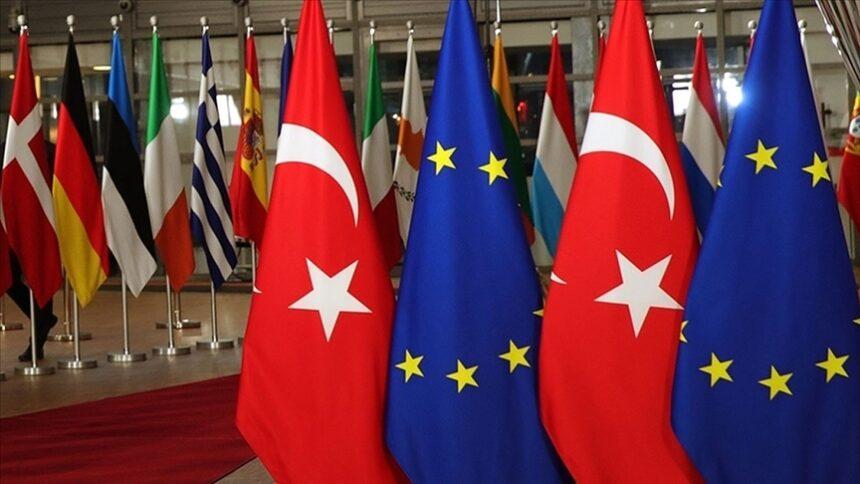The European Commission voiced concerns over Turkey’s backsliding on membership bid in its recent “Turkey Report”. The report announced by the European Commission as part of the 2023 Enlargement Package, positive assessments were made on migration, economy and energy, while criticisms were made on democratization, fundamental rights and judicial independence.
“Türkiye continued to move away from the EU and did not reverse the negative trend in relation to reform, despite its repeated statements of commitment to EU accession. The EU’s serious concerns on the continued deterioration of democratic standards, the rule of law, the independence of the judiciary and respect for fundamental rights were not addressed”, the report said.
EU Commission President Ursula von der Leyen and Commissioner for Neighborhood and Enlargement Oliver Varhelyi announced the country reports on candidates including Turkey and Ukraine at a press conference in Brussels on the 2023 Enlargement package. The EU Commission recommended the opening of accession negotiations with Ukraine, the granting of candidate status for membership to Georgia and the opening of accession negotiations with Moldova, while the report on Turkey warned of serious deficiencies in the functioning of democratic institutions.
The chapter emphasized that Turkey remains a key partner and candidate country for the EU, but pointed out that accession negotiations have been at a standstill since 2018 in line with the European Council’s decision. “Turkey remains a key partner of the EU and a candidate country,” Varhelyi said in the report, adding that Turkey has failed to reverse the negative trend of moving away from the EU and has achieved limited accession reforms.
“Decisive steps must be taken”
“Turkey needs to take decisive steps to increase cooperation,” the report said, underlining that cooperation with Turkey in areas of common interest continues in important areas such as counter-terrorism, economy, energy, food security, migration and transportation.
The report points out that the serious regression in freedom of expression continues, civil society organizations face increasing pressure and narrowing of their scope of activity, and structural deficiencies in the judiciary have not been addressed despite numerous reform packages in recent years.
Highlights from the report:
DEMOCRACY, HUMAN RIGHTS, JUDICIARY
“The Turkish legal framework contains general guarantees of respect for human rights and fundamental freedoms, but legislation and practice need to be aligned with the European Convention on Human Rights (ECHR) and the case law of the European Court of Human Rights.”
FIGHT AGAINST TERRORISM
“No progress on the resumption of a credible political peace process to resolve the Kurdish question”
MIGRATION AND ASYLUM POLICY, VISA LIBERALIZATION DIALOGUE
“Overall, the number of illegal border crossings between Turkey and Greece remained significantly lower than before the adoption of the EU-Turkey Statement.” “None of the benchmarks of the visa liberalization roadmap have been met. Turkey still needs to further align its legislation with the acquis on visa policy.”
FOREIGN POLICY
“Turkey is an active and important actor in the foreign policy field, which is an important element for EU-Turkey relations.” Turkey’s unilateral foreign policy continued to conflict with the EU’s priorities under the Common Foreign and Security Policy (CFSP). Turkey maintained a very low level of alignment with the EU position on foreign and security policy.” Ankara refrained from complying with EU sanctions against Russia” “Following Hamas attacks on Israel in October 2023, Turkey refrained from condemning them and characterizing them as terrorism.”
ECONOMIC SITUATION
“The Turkish economy is well advanced, but no progress has been made during the reporting period.” “Serious concerns remain about the continued proper functioning of the market economy in Turkey.” “The banking sector has remained generally stable but faces financial stability challenges due to a large number of overly complex and far-reaching macroprudential and regulatory measures.” “The diversification of energy sources has improved and the use of renewable sources has increased significantly.”










